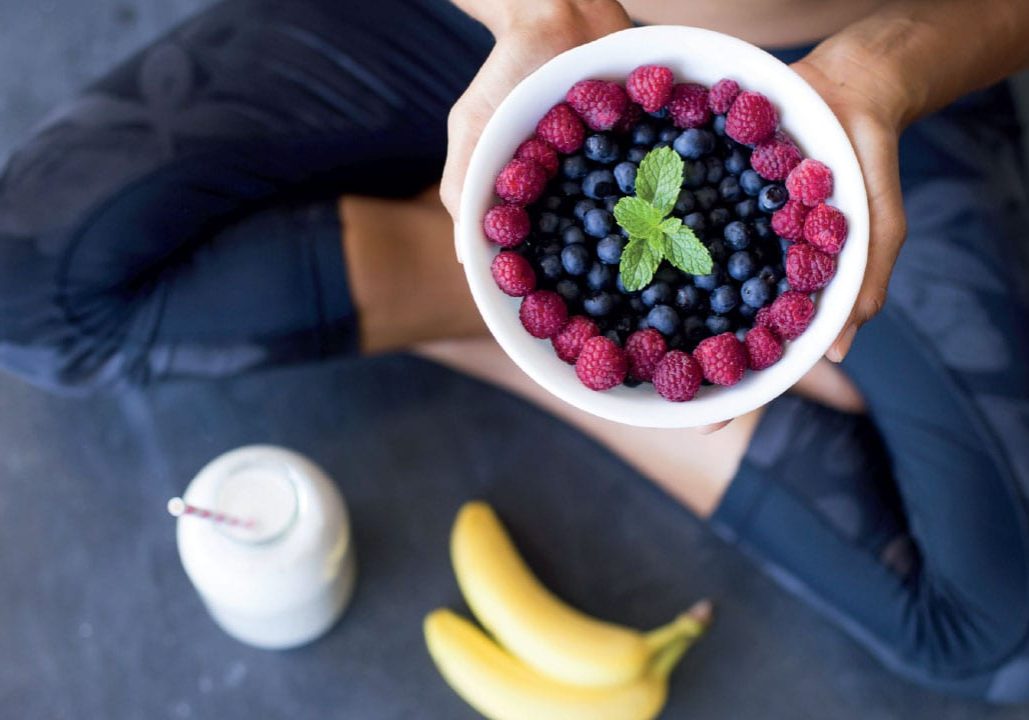
Eating Well Whatever the Cost of Living
As the cost of living continues to spiral, keep things simple if you want to keep your healthy eating plans on track
Reading time: 6 minutes
An estimated 32% of Brits are worried that they are not getting enough nutrients, as the cost of living continues to bite. The concerning news is from a recent YouGov survey commissioned by the British Nutrition Foundation (BNF).
The survey revealed that 68% of people have changed their weekly shopping patterns due to the cost-of-living crisis. Some 26% people now have concerns about being able to afford enough fruit and vegetables to ensure their family eats well — bad news for all those trying to adhere to a healthy lifestyle. The ongoing crisis has also driven Brits to reduce key food items from shopping lists, such as fresh fruit and veg (17%) and dairy products (13%).
But you can keep costs down and stay on track with some simple healthy eating plans, according to the BNF.
The theme of this year’s Healthy Eating Week, the organisation’s flagship annual event, was dubbed, ‘For Everyone’ — it believes that everyone should have access to the knowledge and resources that support a healthy balanced diet, no matter what grocery prices are doing in the shops. The Foundation has released a range of resources including simple — and cheap — healthy recipes to keep you and the family fed well during the current cost of living crisis.
It offers five basic yet important tenets to maintaining good healthy eating habits:
- Focus on fibre
- Get at least 5 a day
- Vary your protein
- Stay hydrated
- Reduce food waste
Simple advice, but powerful and effective, and kind to your pockets, if followed regularly.
“Having a healthy diet is essential for wellbeing and plays a key role in children’s growth and development,” said Elaine Hindal, BNF’s chief executive.
“We believe everyone should have access to information that can help them make informed decisions about eating healthily. With our free resources, we are sharing tips and ideas that can be easily implemented – even with busy lives and in the context of cost-of-living pressures. The ideas are simple and easy, but using them consistently can make a big difference in our diets and lifestyle.”
Delicious family-favourite and easy-to-cook recipes include Bean and Plantain Stew, Mushroom & Chickpea Curry and Green Mac & Cheese.
Focus on fibre
Fibre is a type of carbohydrate that the body cannot break down and so it passes through our gut into our large intestine (or colon). It is found naturally in plant foods like wholegrains, beans, nuts, fruit and vegetables and is sometimes added to foods or drinks. It also helps to keep our digestive system healthy and helps to prevent constipation. To get enough in our diets it is important to include a variety of fibre-providing foods regularly, such as wholemeal bread, wholegrain breakfast cereals, brown pasta or rice, fruit, vegetables, peas, beans, nuts, seeds and potatoes with skins.
Get at least 5 a day
We all know we should eat five portions of fruit and veg a day (at least!) so let’s make sure we stay on it and not get distracted by the cost of living crisis. Canned and frozen fruit and vegetables are often cheaper than fresh and they’re just as good. Also, keep an eye on the ends of aisles in supermarkets for weekly offers on fruit and vegetables. Look online for recipe ideas on how to cook ones that you haven’t used before!
Vary your protein
We need protein to help the body grow and repair itself. It is found in a wide range of foods, broadly in two groups: animal protein sources such as meat, dairy, fish and eggs and plant protein sources such as beans, lentils, nuts and seeds. Both are included in healthy eating guidelines like the UK’s Eatwell Guide. It is a good idea to get your protein from a variety of foods and the government recommends we eat more pulses like beans, lentils, chickpeas that are naturally low in fat and high in fibre.
Stay hydrated
Water makes up over half our bodyweight and fluids are essential for good health. If we are dehydrated this can make us feel tired, cause headaches and make it difficult to concentrate.
The body loses water throughout the day, through our skin, when we breathe and when we go to the toilet and so it is important to drink regularly. We need about 6-8 cups or glasses of fluid a day – more if it is hot or if we are physically active. All non-alcoholic drinks, including tea and coffee, can hydrate us, but plain water is a good choice as it provides us with fluid without any sugar or acids that can harm teeth.
Reduce food waste
Shop smart, cook smart, eat smart and you will almost certainly begin to reduce unnecessary food waste. Understand food labels, including ‘Use by’ and ‘best before’ dates, so you get the maximum out of everything you buy. Sometimes, with foods with a ‘best before’ date, you can use sensory cues to find out if the food is okay to eat (the ‘sniff’ test). You can also use leftover vegetables to make soup, or finely chop them and add them to pasta, couscous or rice for a simple, healthier dish. And don’t forget your shopping list when you go to the supermarket — write it all down on a piece of paper and stick to the plan
For lots of great, delicious and cheap recipe ideas from the BNF, visit: nutrition.org.uk/healthy-eating-week/recipes





